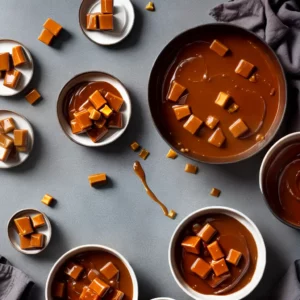Hey there salsa lovers! Are you wondering how to tell if your salsa has gone bad? Well, you’ve come to the right place. As a salsa enthusiast, I know how important it is to preserve the freshness of this delicious condiment. In this article, I’ll share some tips and tricks on how to identify signs of spoilage and ensure your salsa stays fresh for as long as possible.
Key Takeaways:
- Unopened store-bought salsa can last 12-18 months.
- Opened salsa should be consumed within 2-4 weeks, checking for signs of mold or funky smells.
- Homemade salsa lasts 5-7 days in the fridge.
- Proper storage and refrigeration are essential to preserving salsa’s freshness.
- Freezing leftover salsa is also an option.
How Long Does Salsa Last?
Salsa, whether store-bought or homemade, has a limited shelf life. The freshness and longevity of salsa depend on various factors such as whether it is unopened or opened, whether it is store-bought or homemade, and how it is stored. Let’s take a closer look at the shelf life of salsa in different scenarios.
Unopened Store-Bought Salsa
Unopened store-bought salsa can typically last for 12-18 months, but it’s always important to check the expiration date printed on the packaging. The expiration date serves as a guide for determining the freshness and safety of the product. Make sure to store unopened salsa according to the storage instructions provided by the manufacturer.
Opened Store-Bought Salsa
Once you open a jar of store-bought salsa, its shelf life significantly decreases. Ideally, it should be consumed within 2-4 weeks, depending on its condition. Always inspect the salsa for any signs of spoilage, such as the presence of mold or off-putting odors. If you notice any abnormalities, it’s best to discard the salsa to avoid any potential health risks.
Homemade Salsa
Homemade salsa, which typically contains fresh ingredients, has a shorter shelf life compared to store-bought options. When properly stored in the refrigerator, homemade salsa can last for 5-7 days. It’s important to keep it in an airtight container to maintain its freshness and prevent any cross-contamination.
| Salsa Type | Shelf Life |
|---|---|
| Unopened Store-Bought Salsa | 12-18 months (check expiration date) |
| Opened Store-Bought Salsa | 2-4 weeks (depending on condition) |
| Homemade Salsa | 5-7 days (when refrigerated) |
Remember, proper storage and refrigeration are essential for preserving the freshness of salsa. Always check the expiration dates, inspect for signs of spoilage, and trust your senses when determining the quality and safety of the salsa you consume.
Can Salsa Be Left Out?
Once salsa is opened, it should not be left out on the counter. It is important to refrigerate salsa as soon as possible to maintain its freshness and ensure it is safe to consume.
Leaving salsa out at room temperature can promote bacterial growth, which can lead to spoilage and potential foodborne illnesses. To prevent this, always refrigerate salsa promptly to keep it at a safe temperature.
Proper refrigeration not only helps to preserve the quality and flavor of salsa but also extends its shelf life. By storing salsa in the refrigerator, you are minimizing the risk of spoilage, maintaining its freshness, and ensuring it remains enjoyable for a longer period of time.
| Refrigerate | Leave Out | |
|---|---|---|
| Safety | Refrigerating salsa helps to prevent bacteria growth and reduce the risk of foodborne illnesses. | Leaving salsa out at room temperature can promote bacterial growth and increase the risk of spoilage and foodborne illnesses. |
| Freshness | Refrigeration helps to maintain the freshness, flavor, and quality of salsa. | Leaving salsa out may lead to a loss of freshness, flavor, and quality. |
| Shelf Life | Proper refrigeration can extend the shelf life of salsa, allowing it to last longer. | Leaving salsa out may shorten its shelf life, reducing its overall freshness and quality. |
Quotes:
“Storing salsa in the refrigerator as soon as it is opened is crucial to maintain its freshness and safety. Leaving it out on the counter can increase the risk of spoilage and foodborne illnesses.” – Food Safety Expert
“Refrigeration is the best way to preserve the quality and flavor of salsa. By keeping it at a cooler temperature, you can enjoy fresh and delicious salsa for a longer period of time.” – Salsa Enthusiast
How Should You Store Salsa?
When it comes to preserving the freshness of salsa, proper storage is key. Whether you have an unopened jar of salsa or have already cracked it open, here are some important guidelines to follow:
Storing Unopened Salsa
If you have an unopened jar of salsa, it’s important to store it according to its original storage instructions. If the salsa was purchased from the shelf, it should be stored in the pantry, away from direct sunlight and heat sources. On the other hand, if the salsa was refrigerated at the store, it should be kept in the fridge. By adhering to the recommended storage conditions, you can help maintain the salsa’s quality and flavor.
Refrigerating Opened Salsa
Once you’ve opened a jar of salsa, it’s crucial to refrigerate it promptly. The fridge acts as a cool and controlled environment, helping to slow down the growth of bacteria and maintain the salsa’s freshness. Place the opened jar in the coldest part of your fridge, such as the bottom shelf, to ensure optimal preservation. Additionally, make sure to tightly close the lid after each use to prevent air from entering, as exposure to air can lead to faster spoilage and the growth of mold.
Preventing Mold Growth
Mold is a common issue when it comes to storing salsa. To avoid mold growth, it’s important to keep the salsa away from moisture and maintain proper hygiene. Before transferring salsa into the fridge, make sure the jar is clean and dry. If you notice any signs of mold on the salsa, such as fuzzy spots or an unusual texture, it’s best to discard it to avoid potential health risks.
| Storage Method | Duration |
|---|---|
| Unopened salsa on the shelf | 12-18 months (check expiration date) |
| Unopened refrigerated salsa | About 2 weeks (check expiration date) |
| Opened salsa | 2-4 weeks (refrigerate promptly) |
Can You Freeze Salsa?
When it comes to preserving salsa and extending its shelf life, freezing is a viable option. Yes, you can freeze both store-bought and homemade salsa. Freezing salsa allows you to save any leftover portions and use them as a mixing ingredient for future recipes.
To freeze salsa, transfer it to a smaller container or freezer bag to save space. It’s important to ensure that the container or bag is airtight to prevent freezer burn and maintain the salsa’s flavor and freshness. Label the container with the date to keep track of when it was frozen.
However, it’s important to note that freezing salsa may alter its consistency and texture. Thawed salsa may become slightly watery or lose some of its crispness. Nevertheless, it can still be used in recipes that call for cooked salsa or as a topping for dishes like enchiladas or nachos.
Can Salsa Go Bad?
Salsa, like any food product, can go bad if it is not stored properly or if it is past its expiration date. There are several signs to look out for to determine if your salsa has gone bad.
One of the most obvious signs is a strange odor coming from the salsa. If it smells off or has a foul scent, it is likely that the salsa has spoiled. Mold is another clear indicator of salsa gone bad. If you see any mold growth on the surface of the salsa or on the sides of the jar, it is best to discard it.
Additionally, changes in color can suggest that the salsa has gone bad. If the salsa has darkened significantly or has developed an unusual color, it is not safe to consume. Lastly, always check the expiration date on the jar. If the salsa is past its expiration date, it is best to err on the side of caution and dispose of it.
“If the salsa smells off, has mold, changed color, or is past its expiration date, it is best to discard it.”
Ensuring that you store your salsa properly and adhere to the recommended shelf life can help prevent salsa from going bad prematurely. Always refrigerate opened salsa and follow the storage instructions on the jar. By doing so, you can enjoy fresh and safe salsa every time.
Can You Eat Expired Salsa?
When it comes to expired salsa, it’s best to err on the side of caution. Even if your salsa doesn’t show any signs of spoilage, consuming expired salsa can potentially lead to food poisoning. Expiration dates are put in place for a reason, as they indicate the recommended timeframe for consuming the product while it’s still fresh and safe. Eating expired salsa puts you at risk of ingesting harmful bacteria that could cause foodborne illnesses.
Ensuring the freshness of your salsa is crucial, as consuming expired products can have serious health implications. The freshness of salsa can be compromised over time, and its flavors may become dull or unpleasant. To fully enjoy the vibrant flavors of salsa and prevent any potential foodborne illnesses, it’s best to discard any expired salsa and opt for a fresh jar.
Always be mindful of expiration dates and prioritize your health and safety when it comes to consuming perishable food items like salsa. By doing so, you can enjoy the full flavors and textures of fresh salsa while minimizing any potential health risks.
| Expiration Date | Recommendation |
|---|---|
| Expired | Discard the salsa |
| Not expired | Consume the salsa, checking for signs of spoilage |
The Shelf Life of Homemade Salsa
When it comes to homemade salsa, it’s important to note that its shelf life is relatively shorter compared to store-bought options. Fresh homemade salsa, when properly covered and refrigerated, typically lasts for about 4-6 days. The shorter shelf life is due to the absence of as many preserving agents in homemade salsa. Despite this, there are steps you can take to extend its freshness.
One way to prolong the shelf life of homemade salsa is by adding a preserving agent. For example, you can include vinegar or lemon juice in your recipe, as the acidity helps inhibit bacterial growth and extend the salsa’s freshness. Additionally, ensuring that your homemade salsa is properly sealed and stored in the refrigerator can also help maintain its quality and taste for a longer period.
Quote: “Adding a preserving agent like vinegar or lemon juice to your homemade salsa can help extend its shelf life and maintain its freshness.”
To summarize, homemade salsa has a shelf life of 4-6 days when refrigerated. Adding a preserving agent and storing it properly can help extend its freshness. It’s important to check for any signs of spoilage, such as mold or off odors, before consuming homemade salsa.
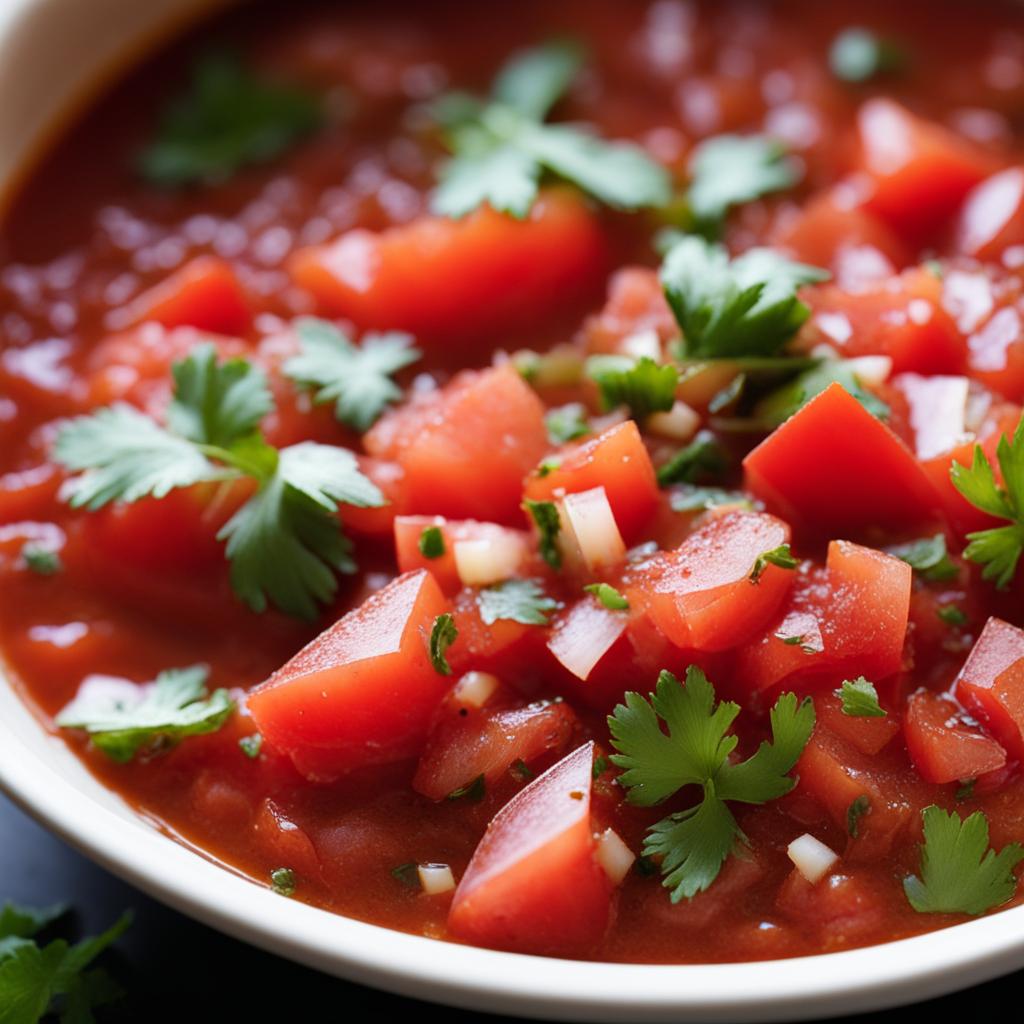
| Shelf Life of Homemade Salsa | Refrigerated | Preserving Agent |
|---|---|---|
| 4-6 days | Yes | Recommended (e.g., vinegar, lemon juice) |
The Shelf Life of Store-Bought, Refrigerated Salsas
When it comes to store-bought salsa, proper storage is key in order to preserve its freshness and extend its shelf life. Refrigeration plays a crucial role in keeping the salsa safe for consumption. Let’s take a closer look at the shelf life of store-bought, refrigerated salsas and the steps you can take to ensure their freshness.
Store-bought salsas that are picked up from the refrigerated section typically contain preserving agents that help to extend their shelf life. These preserving agents work to maintain the salsa’s freshness and prevent spoilage. However, it’s important to note that the shelf life of refrigerated salsas is still limited compared to their commercially-jarred counterparts.
Unopened refrigerated salsas can last for about two weeks or slightly longer, depending on the brand and specific ingredients. However, once the bottle or container is opened, it’s crucial to refrigerate the salsa and cover it with an airtight lid. This helps to maintain its freshness and prevent the growth of bacteria or other contaminants. Additionally, always check the expiration date before consuming the salsa to ensure that it is still within its recommended freshness period.
| Salsa Type | Shelf Life (Unopened) | Shelf Life (Opened) |
|---|---|---|
| Refrigerated Store-Bought Salsa | About 2 weeks or slightly longer | Consumed within 2-4 weeks, depending on freshness and condition |
Properly storing refrigerated salsas is essential for maintaining their freshness and quality. By following these guidelines, you can enjoy your store-bought salsa for longer periods of time, ensuring that it remains a delicious addition to your meals and snacks.
The Shelf Life of Store-Shelf Commercially-Jarred Salsas
Store-shelf commercially-jarred salsas are a convenient option for those who enjoy salsa but don’t want to make it from scratch. These salsas are specifically designed to have a longer shelf life, even without refrigeration. The use of preserving agents ensures that the salsa stays fresh and safe to consume for an extended period of time.
When unopened, store-shelf salsas can last over a year, making them a pantry staple that you can rely on for impromptu snacking or last-minute recipe additions. However, it is important to note that the actual shelf life may vary depending on the brand and specific ingredients used in the salsa.
Even when opened, store-shelf commercially-jarred salsas can last for a month or more, provided they are properly stored in the refrigerator. To maintain freshness, it is crucial to keep the salsa in a tightly sealed container and avoid exposing it to excessive air or moisture. Always check the expiration date before consuming opened salsa to ensure its quality.
In summary, store-shelf commercially-jarred salsas have a longer shelf life compared to homemade salsas. These salsas are specifically formulated to stay fresh for extended periods of time, making them a convenient option for salsa lovers. Whether you’re enjoying them as a standalone dip or incorporating them into your favorite recipes, store-shelf salsas can be a reliable pantry staple.
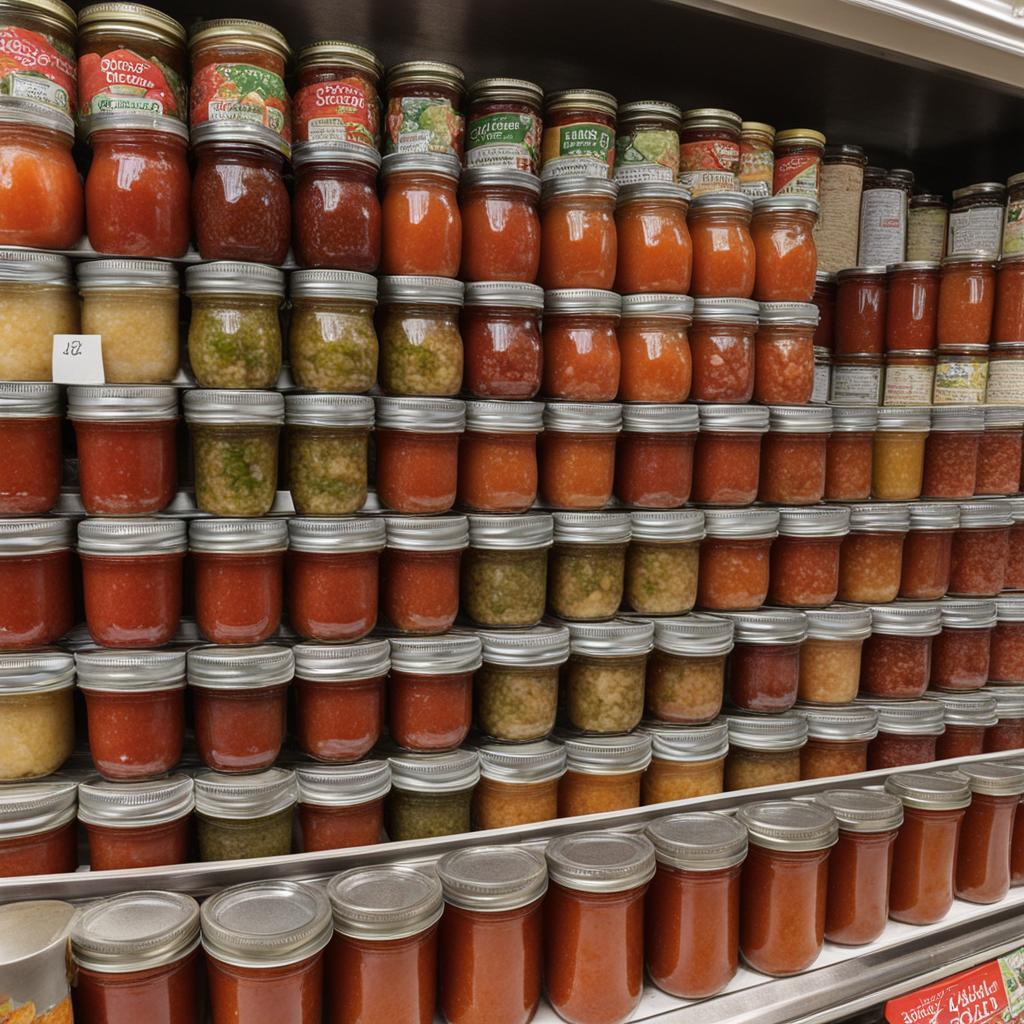
How to Know If Salsa Has Gone Bad
When it comes to salsa, freshness is key. But how can you tell if your salsa has gone bad? By paying attention to a few signs, you can determine whether it’s time to say goodbye to that jar of salsa in your fridge. Here are some indicators that your salsa may have gone bad:
- Strange Odor: If your salsa has developed an unusual or unpleasant smell, it’s a clear sign that it has gone bad. Bad salsa may have a sour or rancid scent, indicating the presence of bacteria or mold.
- Unusual Color: Fresh salsa should have vibrant colors, but if you notice any discoloration, such as darkening or the appearance of mold, it’s best to discard it. Mold growth is a strong indicator of spoilage.
- Off Taste: Give your salsa a taste test. If it tastes tangy or acidic instead of fresh and flavorful, it’s likely gone bad. Trust your taste buds and err on the side of caution.
Remember, consuming salsa that has gone bad can lead to foodborne illnesses. It’s important to prioritize your health and discard any salsa that doesn’t appear or smell fresh. To extend the shelf life of your salsa, store it properly in the refrigerator and always check the expiration date before consuming.
| Signs of Bad Salsa | Causes | |
|---|---|---|
| Odor | Unusual or unpleasant smell, sour or rancid scent | Bacterial growth or mold |
| Color | Discoloration, darkening, mold growth | Mold growth, spoilage |
| Taste | Tangy or acidic taste | Fermentation, spoilage |
By keeping an eye out for these signs of salsa spoilage, you can ensure that you’re enjoying fresh and delicious salsa every time. Trust your senses and prioritize food safety when it comes to your salsa. Remember, when in doubt, it’s better to be safe than sorry!
Why Do Hot Sauces Last Longer?
Hot sauces have a longer shelf life compared to salsa, and there are a few reasons behind this. One of the key factors is the use of preserving agents in hot sauce recipes. These preserving agents help to extend the shelf life of hot sauces, allowing them to stay fresh for a longer period of time.
One common preserving agent found in many hot sauces is vinegar. Vinegar is known for its antimicrobial properties and ability to inhibit the growth of bacteria and fungi. When added to hot sauce recipes, vinegar acts as a natural preservative, helping to prevent spoilage and maintain freshness.
Another factor that contributes to the longer shelf life of hot sauces is the use of chili peppers. Chili peppers contain capsaicin, a compound that not only gives hot sauces their heat but also acts as a natural preservative. Capsaicin has antimicrobial properties, which can help to inhibit the growth of bacteria and prolong the shelf life of hot sauces.
| Preserving Agents | Hot Sauce | Salsa |
|---|---|---|
| Vinegar | Yes | No |
| Chili Peppers | Yes | No |
By utilizing these preserving agents, hot sauce manufacturers are able to create products with an extended shelf life. The higher ratios of vinegar and chili peppers in hot sauces compared to salsa contribute to their longer-lasting freshness. So, if you’re looking for a condiment that can last a bit longer in your pantry, hot sauce may be the way to go.
Conclusion
In conclusion, maintaining the freshness of salsa relies on proper storage and refrigeration. Whether you have store-bought or homemade salsa, it’s important to follow specific guidelines to maximize its shelf life and ensure its quality.
Unopened store-bought salsa can last up to 18 months, while opened salsa should be consumed within 2-4 weeks. Homemade salsa, on the other hand, has a shorter shelf life of around 5-7 days when refrigerated.
Remember to check for signs of spoilage, such as mold growth, strange odors, or changes in color, before consuming salsa. Trust your senses, as they are a reliable indicator of salsa’s freshness and safety.
If you find yourself with leftover salsa, freezing it is an option to extend its shelf life. However, keep in mind that the texture may be altered upon thawing.
By following these storage tips and being mindful of salsa’s shelf life, you can enjoy fresh and delicious salsa for longer periods, ensuring each dip or topping is a flavorful delight.
FAQ
How long does salsa last?
Unopened store-bought salsa can last 12-18 months, but always check the expiration date. Opened salsa should be consumed within 2-4 weeks, depending on its condition. Homemade salsa lasts 5-7 days in the fridge.
Can salsa be left out?
Once salsa is opened, it should not be left out on the counter. It should be refrigerated as soon as possible to keep it fresh and safe to consume.
How should you store salsa?
Unopened salsa should be stored according to its original storage instructions. If it was on the shelf, store it in the pantry. If it was refrigerated, store it in the fridge. Always refrigerate salsa after opening, preferably in the coldest part of the fridge. Close the jar lid tightly to prevent air from entering, which can lead to a shorter shelf life and mold growth.
Can you freeze salsa?
Yes, salsa can be frozen to extend its shelf life. Transfer leftover salsa to a smaller container or freezer bag to save space. Properly stored frozen salsa can be used as a mixing ingredient for future recipes. However, the consistency and texture may change upon thawing.
Can salsa go bad?
Yes, salsa can go bad if not stored properly or if it is past its expiration date. Signs of spoiled salsa include a strange odor, visible mold, a darkened color, or an expired expiration date. It is important to inspect the salsa before consuming to ensure it is safe and fresh.
Can you eat expired salsa?
It is not recommended to eat expired salsa, even if it shows no signs of spoilage. The expiration dates are there for a reason, and consuming expired salsa can potentially lead to food poisoning. It is best to discard expired salsa and purchase a fresh jar.
What is the shelf life of homemade salsa?
Fresh homemade salsa, when properly covered and refrigerated, has a shelf life of 4-6 days. Homemade salsa does not contain as many preserving agents as store-bought options, so its shelf life is shorter. Freezing homemade salsa can extend its shelf life, but it may alter the consistency and taste.
What is the shelf life of store-bought, refrigerated salsas?
Store-bought salsas picked up from the refrigerated section typically have preserving agents to extend their shelf life. Unopened refrigerated salsa can last for about two weeks or slightly more. Once opened, it should be refrigerated and covered with an airtight lid to maintain freshness. Always check the expiration date before consuming.
What is the shelf life of store-shelf commercially-jarred salsas?
Airtight, unopened commercially-jarred salsas can stay fresh for over a year, even without refrigeration. These salsas are specifically made to be shelf-stable for extended periods of time. Even when opened, these commercially-jarred salsas can last for a month or more, depending on the ingredients used.
How can you tell if salsa has gone bad?
To determine if salsa has gone bad, use your senses. Look for changes in color, such as darkening or mold growth. Check for strange odors or a noticeable separation of ingredients. If the salsa tastes tangy or acidic, it may be a sign that it has gone bad. Trust your senses and discard any salsa that does not appear or smell fresh.
Why do hot sauces last longer?
Hot sauces generally have a longer shelf life compared to salsa due to the use of preserving agents. The vinegar and chili peppers in hot sauces act as preservatives, extending their shelf life. The higher ratios of these ingredients in hot sauces contribute to their longer-lasting freshness.
Source Links
- https://pepperpalace.com/blogs/expert-tips/when-salsa-goes-bad-tips-for-keeping-salsa-fresh
- https://www.allrecipes.com/article/how-long-does-jarred-salsa-last/
- https://pepperscale.com/does-salsa-go-bad/
Related Recipes:
 Does Almond Milk Go Bad? How to Tell and Storage Tips.
Does Almond Milk Go Bad? How to Tell and Storage Tips.
 How to Tell if Jelly Has Gone Bad: Preserving Quality
How to Tell if Jelly Has Gone Bad: Preserving Quality
 Does Peanut Butter Go Bad? Shelf Life and Storage Tips
Does Peanut Butter Go Bad? Shelf Life and Storage Tips
 Can You Eat Expired Butter? What You Need to Know
Can You Eat Expired Butter? What You Need to Know
 How to Tell if Cottage Cheese is Bad: Warning Signs
How to Tell if Cottage Cheese is Bad: Warning Signs
 Tofu Storage Tips for Freshness
Tofu Storage Tips for Freshness
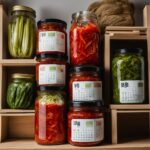 Does Kimchi Go Bad? Tips for Storage and Shelf Life
Does Kimchi Go Bad? Tips for Storage and Shelf Life
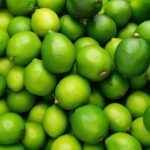 How to Tell if Limes Are Bad: Spotting Spoilage
How to Tell if Limes Are Bad: Spotting Spoilage







